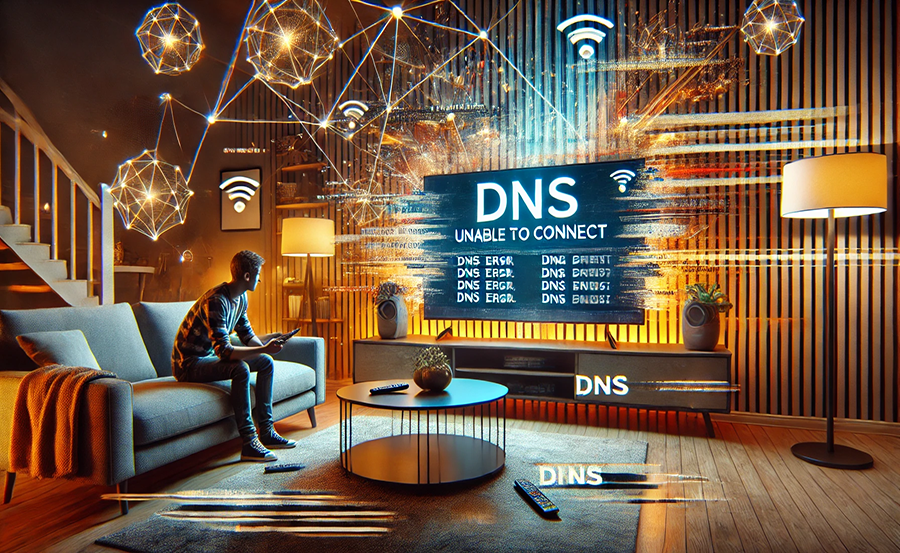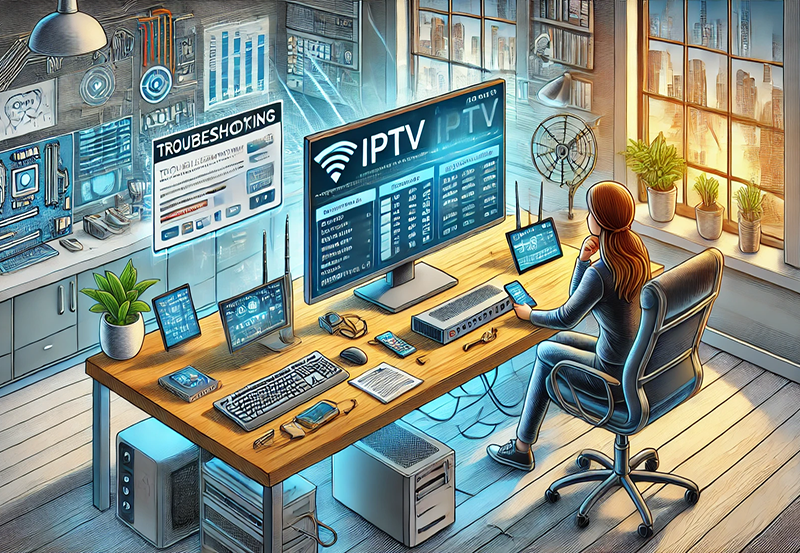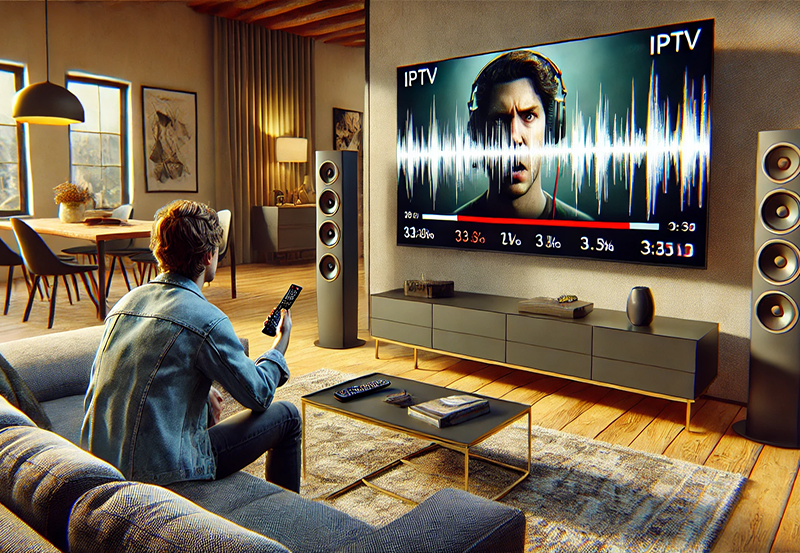When diving into the world of IPTV (Internet Protocol Television), users often encounter a range of technical challenges that can disrupt their viewing experience. One of the most common yet misunderstood problems is related to DNS (Domain Name System) issues. As IPTV gains popularity, understanding DNS and how it affects your viewing is crucial. In this article, we’ll explore these DNS issues, delve into why they occur, and provide practical solutions to help you enjoy a seamless IPTV experience. Whether you’re just starting with IPTV or looking to maximize your current setup, this guide aims to equip you with the knowledge to troubleshoot effectively.
What is IPTV and How Does it Work?
Before we dive into DNS issues, it’s essential to understand what IPTV is. IPTV stands for Internet Protocol Television and it refers to the streaming of television content over the internet, instead of traditional terrestrial, satellite, or cable formats. Unlike traditional TV broadcasting, IPTV offers unique features such as live streaming, on-demand video, and time-shifted media, allowing you to watch TV your way.
IPTV operates through a broadband connection, using IP packets over a network rather than through cable or satellite signals. This delivery method requires a stable internet connection and often involves a subscription to the best IPTV service to access a variety of content.
Pro Tip:
Stream live matches in HD with IPTV for sports streaming and never miss a moment of the action.
Benefits of IPTV
IPTV offers numerous benefits, such as:
- Access to an extensive range of channels beyond geographical limitations
- Flexibility to watch shows on multiple devices including TV, smartphones, tablets, and computers
- Customization through M3U playlists for IPTV, making it easier to watch preferred channels
Understanding these benefits highlights why resolving technical issues like DNS problems is imperative for any IPTV user.
Understanding DNS and its Role in IPTV
The Domain Name System (DNS) is often described as the phonebook of the internet. It translates human-friendly domain names like “example.com” into IP addresses, facilitating the connection between your device and the desired server.
DNS in the Context of IPTV
When it comes to IPTV, DNS plays a crucial role. A robust DNS setup ensures that your IPTV service can quickly locate and connect to the right servers, streaming your chosen content without a hitch. Unfortunately, many users overlook the importance of choosing the right DNS settings, leading to buffering and connectivity problems.
Common DNS Issues in IPTV
Some of the frequency-related DNS issues IPTV users face include:
- Slow loading times due to DNS server lag
- Inability to access specific channels because of incorrect DNS settings
- Interruptions in video streaming that lead to buffering or dropped connections
Recognizing these issues can guide you towards implementing the right solutions, improving your overall viewing experience.
How DNS Issues Affect Your IPTV Experience
DNS issues can severely impact your IPTV experience. From missed live events to disrupted binge-watching sessions, such challenges can quickly become frustrating. Understanding how these problems manifest and why they’re significant is the first step towards a satisfying IPTV setup.
Performance and Speed Impacts
One of the primary ways DNS issues affect IPTV is through performance. A slow DNS can delay the connection to your IPTV servers, leading to long load times and constant interruptions. Ensuring you’re using a fast and reliable DNS provider is key to minimizing buffering and downtime.
Content Accessibility
Beyond performance, DNS settings can also affect what content is accessible. Incorrect DNS configuration might restrict access to certain services or channels, reducing the variety that IPTV is known for. Adjusting your DNS can help unlock content and ensure you get the most out of your IPTV service.
Identifying DNS Problems in Your IPTV Setup
Before you can fix DNS issues, you need to know how to identify them. Here are some common signs that DNS might be wreaking havoc on your IPTV experience:
- Frequent buffering during streaming sessions
- Unavailable channels or services
- Error messages indicating server connection failures
Diagnostic Tools and Techniques
Several tools can help diagnose DNS problems, including:
- Network speed testers to check connection stability and speed
- DNS benchmarking tools to evaluate the performance of different DNS servers
Why Correct Diagnosis is Important
Accurately diagnosing DNS issues is crucial as it ensures you apply the right fix. Blindly changing settings can often do more harm than good, so take the diagnostics stage seriously to streamline your troubleshooting efforts.
Fixing DNS Issues for a Better IPTV Experience
Once you’ve identified that DNS is at the root of your IPTV problems, it’s time to explore solutions. Fortunately, most DNS-related issues are solvable with a few adjustments.
Choosing the Right DNS Provider
There are numerous DNS providers available, each offering different benefits. When selecting a provider, consider factors such as speed, reliability, and privacy features. Leading DNS services recommended for IPTV users include Google DNS, Cloudflare, and OpenDNS.
Configuring DNS Settings on Your IPTV Device
To change your DNS settings, you’ll typically need to access the network configuration section on your IPTV device or router. This process might vary depending on your specific setup but the general steps involve:
- Accessing the network settings menu
- Entering the DNS server addresses manually
- Saving changes and restarting your device
Ensure that you double-check input to avoid typographical errors that could lead to further connectivity issues.
Beyond DNS: Maximizing Your IPTV Experience
While fixing DNS issues is crucial, optimizing your IPTV experience involves several other considerations. Here’s how you can further enhance your streaming experience:
Optimize Your Internet Connection
Ensuring a stable and fast internet connection is foundational for IPTV. Consider using wired connections over wireless for lower latency and fewer interruptions.
Utilize Quality IPTV Services and M3U Playlists
Partnering with a reputable IPTV service ensures access to high-quality streams and customer support. Additionally, using M3U playlists for IPTV personalizes your channel list, simplifying navigation and enhancing viewing convenience.
Closing Thoughts
As IPTV continues to reshape media consumption, addressing technical challenges like DNS issues becomes increasingly important. By understanding the role DNS plays in your streaming experience and learning how to troubleshoot effectively, you’re well on your way to seamless IPTV enjoyment. Whether it’s optimizing your settings or selecting the best IPTV service, each step you take not only resolves current issues but also paves the way for future upgrades. So, whether you’re watching live sports or catching up on TV shows, remember—your IPTV journey is all about making technology work for you, not against you.
FAQ Section

Why does my IPTV keep buffering?
Buffering in IPTV can result from several factors, including slow internet speeds, insufficient bandwidth, or DNS-related issues. Ensuring a stable and high-speed connection, and checking your DNS settings, can help mitigate these problems.
How do I change the DNS on my IPTV device?
Changing the DNS on your IPTV device typically involves accessing the settings menu, navigating to the network options, and entering new DNS addresses. Instructions might vary based on your device model, so refer to the manual for detailed guidance.
What is the best DNS server for IPTV?
The best DNS server for IPTV often depends on your location and specific needs. Popular options include Google DNS and Cloudflare, both known for speed and reliability.
Can poor DNS settings affect channel availability?
Yes, incorrect DNS settings can limit access to specific channels due to translation errors between domain names and IP addresses, thereby affecting channel availability and streaming quality.
What should I consider when selecting an IPTV service?
When choosing the best IPTV service, consider factors such as channel selection, customer reviews, pricing, and technical support. Ensure the service provides reliable streaming and offers features that meet your viewing preferences.
Top 10 UK IPTV Providers in 2024: Ultimate Guide for Streaming




